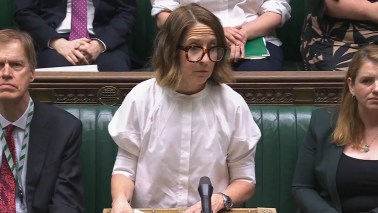Nicola Sturgeon’s indication that SNP MPs will back a second vote on Brexit might be clever politics but it is likely to stir up further animosity among English voters towards the Scots. Consider the Future of England survey, which shows that 88 per cent of English Leave voters (and 52 per cent of all English voters) would accept the break-up of the UK so long as England leaves the EU. Some might suggest that the poll is further evidence of the Little Englander mentality that will ineluctably drive the Scots to secede from the Union. But does it instead reveal something else? Perhaps, it would seem, English voters are getting as tired as most Scots are of the SNP’s constitutional wrangling.
The 2014 independence referendum ended in defeat for the nationalists, but it was a close-run thing. The Scottish Labour-dominated Better Together campaign, unwilling to mobilise such bourgeois constructs as Flag and Family, foolishly concentrated almost exclusively on finance: you won’t have a currency, you won’t be in the EU any more, your economy will collapse. It’s no surprise that the SNP’s flag-waving Braveheart fantasy was a better story. But be that as it may, the Scottish people voted in their “once in a generation” referendum to remain part of the United Kingdom, to remain “British”.
The Brexit referendum that followed two years later stirred matters up again. Despite how Nicola Sturgeon would present it, Scotland’s vote was not unanimous, splitting 62/38 for Remain compared to 48/52 for the entire UK. This is a significant majority, of course, but only among a sub-group of the whole British electorate. There may also have been a significant segment of Scots who would normally have voted to Leave but who voted Remain in an attempt to avoid reinvigorating the independence debate. The fact that there was no subsequent bump in support for independence lends some support to that thesis.
In an ideal world, we would now be in a situation where everyone accepted that the Scots voted to remain British, that the British voted to leave Europe, and the SNP were now free to concentrate fully on screwing up Scotland’s health, education, transport and policing. Instead, these two outcomes are set to be pitched against each other in perpetuity.
In a recent interview with ITV, Nicola Sturgeon claimed that Scotland’s ‘voice is lost in the bigger UK’, describing it as a ‘democratic deficit’. In fact, this is just the standard compromise present in any democracy.
The voices that insist ‘Scotland voted to Remain, and that should be respected’ are also, in a sense, saying that the Scots are still a people apart and that their Britishness should not be taken as unquestioned. I can see why the Nationalists are fond of that argument as it opens the door to a second independence referendum. But it baffles me why some Scottish Unionist commentators share it.
Take this from Alex Massie for example:
[…] Those of us who had good seats for the United Kingdom’s near-death experience in 2014 have reason to peer across the border and feel as though we have been let down. This isn’t a demand to cancel Brexit; it is something more modest […]; a simple suggestion that the order of precedence be rethought and rearranged. If you liked or valued the United Kingdom, Leavers, you might place greater emphasis on its survival.
In other words, English Unionists who voted to leave the EU aren’t proper Unionists at all, otherwise they would have paid more regard to Scottish sentiment before voting for Brexit. Yet it’s not a contradiction to be a Brexiteer Unionist; if you have a strong belief in the UK, then logically you wish for it neither to be torn apart nor swallowed up into a supranational entity. But those voices – nationalist and unionist – that insist otherwise, demanding that the presence of the Scots in the Union should disproportionately weigh on the decision that Britain makes as a whole, are effectively stating that the opinion of a Scot must count for more than that of any other Brit.
So it would be hardly surprising if, as a result, some English voters become increasingly indifferent to their closest neighbours. A political union, like a family, can maintain solidarity despite almost any disparity in spending, political imbalance, or in the degree of affection or indifference. But what it cannot bear is a group that thinks that they count for more than anyone else. If some English voters are cooling in their attitude to the Scots, I fear that is a problem created, not by Brexiteers in England, but north of the border by the SNP. With Ian Blackford threatening “maximum disruption” unless the rest of the union comes to heel, it’s clear that the SNP know this. To combat their mendacity disguised as principle, the rest of us need to concentrate more on what, literally, unites us – the equality that each of us possesses as British citizens.






Comments